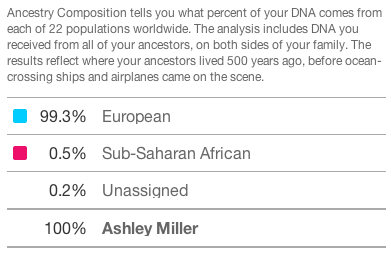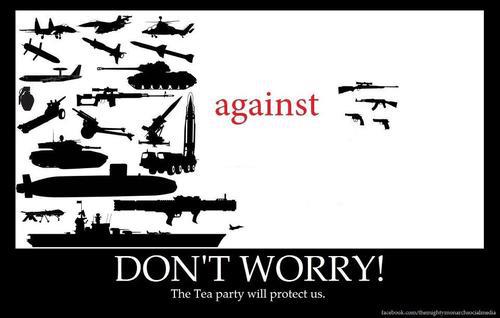So I got this e-mail accusing me of slander and informing me that attorneys will be in touch regarding damages from an old post about a service called “Cinematic Appraisals.” The writer does seem to have a fundamental misunderstanding of the fact that every time they e-mail me, there’s something new for the front page of Google. In different places, this particular message seems to be trying to legally threaten me, trying to shame me, and trying to make me feel sorry for her.
The e-mail mentions a Facebook *page* with which I am unfamiliar, but I have written about their website twice — once before FtB (on SheThought, WordPress, and now hosted here) and once last spring. The second does a very thorough job highlighting all of the things claimed without evidence on the scientific part of their website:
http://freethoughtblogs.com/ashleymiller/2010/11/04/cinematic-appraisals-scam-or-science/
http://freethoughtblogs.com/ashleymiller/2013/04/22/i-get-e-mail-cinematic-appraisals-mind-science-or-pseudoscience/
Now the letter — it is pasted as is, typos hers. I’ve offered some notes.
Dear Ms. Miller,
I am shocked that you have maintained your campaign against my company even after I communicated the facts you misstated.¹ From this point forward our attorney will be the only contact because we feel it is important that people who seek to have a public voice are also accountable for their actions. I appreciate the rights our great country affords its citizens and, like most people, work hard to keep my rights from infringing on the rights of others. Thankfully, our courts have defined where your rights end and mine begin. I cannot imagine why anyone who wishes to have a public voice would so recklessly damage the business of another, especially without provocation.In your November 4th, 2010 post, you identify yourself as a writer who spends, “a lot of time looking out for scams trying to take advantage of me” and identifies my company as fraudulently “bilking people out of their money”, even though the Home page of our website clearly defines that we do not work with writers and that we do not offer screenplay coverage.² We have not solicited your work and you have never been a customer. However, you have gone as far as to misleadingly solicit ScriptSavvy and Carson Reeves as alternative legitimate businesses for your readers to use as though they performed the same service as our company.
You are certainly aware of your errors and the damages of your slanderous comments.³ I contacted you personally⁴ as soon as your initial post surfaced in the Google search results requesting that you re-visit our website for the facts,⁵ however you continued your campaign of slanderous advertising by creating a Facebook page labeling our company a “scam”. Facebeook removed the page over liability concerns, yet your posting continued.⁶ I contacted you again on April 21, 2013 indicating that we had been financially harmed by your posts and clarifying again that we are an emotional response testing company, not screenplay coverage.
Your misleading comments have financially harmed our business, slandered our business name and disparaged our products, and we will seek to recover the damage you have caused. I hope you can put yourself in my shoes and understand how you would react to someone that slandered your name or a business you worked hard to create.
Sincerely,
Christine Reynolds
[email protected]
1. By maintaining a campaign, she seems to mean not having deleted the initial post. On her part, no facts have been offered, no questions answered, no sources or science presented.
2. “After the initial page-by-page study is complete and individual score determined, the screenplay is then studied and examined by separate evaluators for its story structure and connection strength, yielding the second analysis based on content.” I’m sure there’s some other word for this than screenplay coverage, but for some reason it’s just not coming to me.
3. I’ve yet to be offered any information suggesting my analysis was in error, despite having asked for it.
4. She technically contacted my editor with this message: “11/17/10 8:23pm We strongly suggest you review the complete information on our website prior to making slanderous comments, as our evaluations are completely separate from script coverage and script doctoring services. Our evaluations measure the bioneurological activity of the tester. We are available to answer any questions you may have.” My editor responded by saying she was free to say what was wrong with the post and to offer any fact corrections. We also both asked her for any scientific evidence for the claims on her site. There was no response. Also, “bioneurological” is a silly, meaningless word.
5. Facts were not and are not available on the website, which is the entirety of the complaint. Seriously, nearly every sentence makes a claim that should have a citation.
6. I legitimately have no idea what she’s talking about here. The only thing on Facebook I can find is me sharing my post about it last spring, which is obviously still up: https://www.facebook.com/mgafm/posts/10100289115192657 Possibly there was some actual page created? I am unsure.
UPDATE:
I got a second e-mail from the same address, this one far more aggressive.
You obviously have not consulted an attorney, you will need to do so. When you do, they will tell you that you have no defense.
Your opinion is not based on experience or knowledge, the only opinion you have shared has been a fabrication because we have never conducted ourselves fraudulently with you or anyone else and do not even offer the services you purport are a “scam”.
Professional legal counsel will advise you on the difference between expressing yourself and infringing on the rights of others through slander, product disparagement, and tortious interference. Your postings are such an obvious example of a violation of the statutes that an attorney actually contacted us.
We have the ability to change our name or simply bury your online fabrications, while recovering our lost income and marketing expenses from you for the period beginning when your slanderous campaign originated in November 2010 through the end of 2013. Thankfully, you cannot change who you are and when I worked at an educational institution, part of my job was performing background checks on any potential speakers to ensure a solid reputation and to avoid people such as yourself that recklessly slander others which could damage the institution’s reputation.
Regardless of the outcome of this slander complaint, I will keep it renewed to forewarn others. Additionally if this lawsuit, whose judgement I will personally keep renewed until every cent I am awarded has been repaid, protects the world from another aggressive blogger with nothing relevant to say, the stress of the court filings will have been worth it because I will have made the world a better place.










